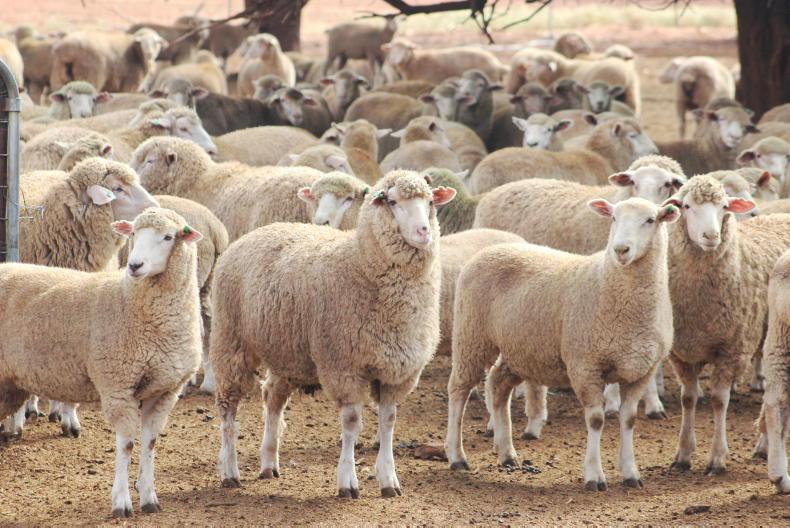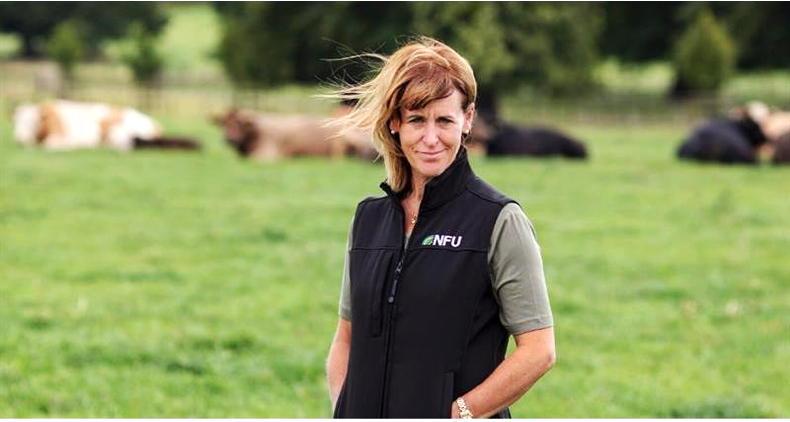The UK government has decided to ratify the free trade agreement (FTA) with Australia without a vote in Parliament, as had been promised.
The move has outraged National Farmers Union (NFU) president Minette Batters, who tweeted that “the bypassing of our democracy on Australia FTA is an utter betrayal to the UK”.
It means the FAT will now come into effect in the coming weeks without scrutiny by MPs and is likely to come into effect before the end of the year or early 2023.
The NFU president also tweeted her displeasure with the deal, saying that “for the life of me I will never understand why the Conservative government gave away so much for so little”.
The deal will give Australia full access to the UK beef and sheepmeat market over a period of 15 years, though it will start with generous quotas of 35,000t for beef and 25,000t for sheepmeat.
Threat to UK and Irish farmers
UK farmers correctly see this and the New Zealand deal as increased competition in their market space.
However, while it will be a challenge, the fact that the retail sector in the UK is strongly committed to British meat means that the impact on UK farmers from Australian farmers will be restricted.

Australia will get a 25,000t sheepmeat quota for the UK as soon as the deal comes into effect.
However, it is a different story for Irish farmers. In 2021, almost 80% of beef imported by the UK was supplied by Ireland.
The UK is a net importer of beef, as it consumes 20% more beef than it produces, hence the creation of a British-Irish beef trade going back centuries.
Meat and Livestock Australia (MLA), which performs a similar role to Bord Bia, has targeted this import market for beef as opposed to the market supplied by UK farmers.
This puts Irish beef and sheepmeat in direct competition with Australian in the British market.
Irish dependency on UK market for beef
This is bad news for Irish beef in particular, as Britain is consistently the market for 40% to 50% of all beef exports.
It is less of an issue for sheepmeat, as it represents about 25% of the market, and the EU overall is a net importer of sheepmeat, whereas it is an exporter of beef.
Of course, Irish exporters will continue to have the advantage of being closer, in some cases less distance from major distribution centres in central England, than suppliers from the north of Scotland.
Ability to fit into British just-in-time delivery strategies will have a continued value, but the price will be increasingly dictated by what Australian product is available at.
The other advantage is that at present particularly high prices in Australia means that Australian cattle actually cost more than Irish, so it is unlikely that there will be huge volumes of cheap beef available to ship to the UK immediately.
Australian beef exports are at their lowest point this century, as the herd rebuilds following prolonged drought.
So far, Irish farmers have escaped unscathed from Brexit, as the UK hasn’t introduced full border controls yet and trade deals haven’t come into effect.
That is about to change when the Australian deal comes into effect, though the impact will be felt over a period of time rather than immediately.
The UK government has decided to ratify the free trade agreement (FTA) with Australia without a vote in Parliament, as had been promised.
The move has outraged National Farmers Union (NFU) president Minette Batters, who tweeted that “the bypassing of our democracy on Australia FTA is an utter betrayal to the UK”.
It means the FAT will now come into effect in the coming weeks without scrutiny by MPs and is likely to come into effect before the end of the year or early 2023.
The NFU president also tweeted her displeasure with the deal, saying that “for the life of me I will never understand why the Conservative government gave away so much for so little”.
The deal will give Australia full access to the UK beef and sheepmeat market over a period of 15 years, though it will start with generous quotas of 35,000t for beef and 25,000t for sheepmeat.
Threat to UK and Irish farmers
UK farmers correctly see this and the New Zealand deal as increased competition in their market space.
However, while it will be a challenge, the fact that the retail sector in the UK is strongly committed to British meat means that the impact on UK farmers from Australian farmers will be restricted.

Australia will get a 25,000t sheepmeat quota for the UK as soon as the deal comes into effect.
However, it is a different story for Irish farmers. In 2021, almost 80% of beef imported by the UK was supplied by Ireland.
The UK is a net importer of beef, as it consumes 20% more beef than it produces, hence the creation of a British-Irish beef trade going back centuries.
Meat and Livestock Australia (MLA), which performs a similar role to Bord Bia, has targeted this import market for beef as opposed to the market supplied by UK farmers.
This puts Irish beef and sheepmeat in direct competition with Australian in the British market.
Irish dependency on UK market for beef
This is bad news for Irish beef in particular, as Britain is consistently the market for 40% to 50% of all beef exports.
It is less of an issue for sheepmeat, as it represents about 25% of the market, and the EU overall is a net importer of sheepmeat, whereas it is an exporter of beef.
Of course, Irish exporters will continue to have the advantage of being closer, in some cases less distance from major distribution centres in central England, than suppliers from the north of Scotland.
Ability to fit into British just-in-time delivery strategies will have a continued value, but the price will be increasingly dictated by what Australian product is available at.
The other advantage is that at present particularly high prices in Australia means that Australian cattle actually cost more than Irish, so it is unlikely that there will be huge volumes of cheap beef available to ship to the UK immediately.
Australian beef exports are at their lowest point this century, as the herd rebuilds following prolonged drought.
So far, Irish farmers have escaped unscathed from Brexit, as the UK hasn’t introduced full border controls yet and trade deals haven’t come into effect.
That is about to change when the Australian deal comes into effect, though the impact will be felt over a period of time rather than immediately.







 This is a subscriber-only article
This is a subscriber-only article











SHARING OPTIONS: